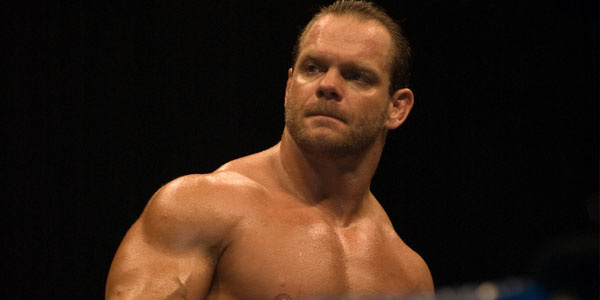Chris Benoit - When Heroes Go Down
On meeting and interviewing the former WWE Heavyweight Champion just three short months before he murdered his wife and child.
If you're not a wrestling fan, the name Chris Benoit might not mean much. 'The Rabid Wolverine' only ever came to the attention of the wider world through the gossip mags, and then, when he did make headlines, it was for the worst reason imaginable.
Three months prior to the appalling events of 23 June 2007, I sat down with the Canadian in a hotel bar in Chelsea. As one of those tragic individuals/absolute legends who loves professional wrestling, I couldn't have been happier to catch up with the 40-year-old from Montreal; a bona fide athlete who made this most ridiculous form of theatre appear incredibly real.
What struck me at the time was how removed Benoit was from his ring persona. When we discussed his recently deceased mentor, 'Bad News' Allen Coage, he didn't attempt to hide how upset it left him.
"All my memories of Allen are fond," he explained. "He was one of the first guys to take me under his wing, and I was awed by that because I was just Chris Benoit, an 18-year-old kid from Alberta. I was nobody and he took the time to help me. He was a good friend - so good that, when he set up my first trip to Japan, he didn't disguise the fact that I'd find it very hard over there. Some people might have downplayed that, but not a real friend. Allen was a stand-up guy and the most generous of men."
He got emotional again when discussing Sydney, Australia, where I'd lived for the previous four years.
"Man, that's a beautiful town you were in," he sighed. "Although I've seen a lot of the world, I didn't think I could live anywhere but North America. But then I toured Australia with the WWE, and I was all but crying when we left Sydney - I really feel I could live a good life there."
I hadn't expected such openness from the long-time member of the celebrated Four Horsemen faction, who always wrestled like a man who felt no emotion at all.
When we were done talking, Chris introduced me to his wife Nancy who, before she'd become Mrs Benoit, was one of the hottest valets in the wrestling world. Fortysomething and still stunning, Mrs Benoit was delightful and charming in the way that all really, really good-looking people are.
Fast forward precisely three months, and a text from a friend informs me of the terrible news. Chris, Nancy and their nine-year-old son Daniel are all dead. A day or so later and the true horror of the story was revealed. Chris Benoit - that nice polite hero of mine - had murdered his wife of nine years, then, a full 24 hours later, killed his son. After leaving a Bible besides their bodies, Chris Benoit then walked into his gym and hanged himself.
In the days and weeks that followed, one question was continually asked: 'Why?' And while the precise reason remained elusive, some remarkable facts came to light. Facts about Benoit's steroid intake, for example. With a physique resembling a condom stuffed full of walnuts, few people were in any doubt that the Wolverine was devouring pills at an alarming rate. Benoit, though, had been illegally buying steroids on-line and using them to a degree that would nowadays result in a lengthy ban.
But if his drug use was regrettable, the extent of the brain trauma Benoit had experienced was quite extraordinary. A big fan of Japanese 'strong-style' wrestling, Benoit's no-nonsense technique resulted in such devastating physical injuries as a broken neck. And while he tore muscles and shattered bones, he suffered blow upon blow to the head. Of course, concussions and KOs are to be expected in pro wrestling. But when neurosurgeon Julian Bailes examined Benoit, he could barely comprehend the results. For the otherwise healthy 40-year-old had a brain resembling that of an 80-year-old Alzheimer's victim.
In the wake of the Benoit murder-suicide, WWE Chairman Vince McMahon effected many changes. As the owner of a billion dollar, family-friendly entertainment company, McMahon had to rid himself of the bad publicity as quickly as possible. To this end, he enhanced the WWE's Wellness Policy to further encourage his wrestlers to distance themselves from drug-use.
Though it would have been convenient for McMahon to delete Chris Benoit from the history books, he was too good at what he did to be forgotten. Years later, any list of great wrestlers is still incomplete without his name. But leaf through those aforementioned gossip magazines or newspapers, and you'll see they all ask the same question: "What must it be like to confront pure evil?".
As one of the last journalists to meet Benoit before he died, all I know is that 'pure evil' was a soft-spoken, sad, but endlessly polite man who gave no hint he was heading towards such a violent and tragic end.




